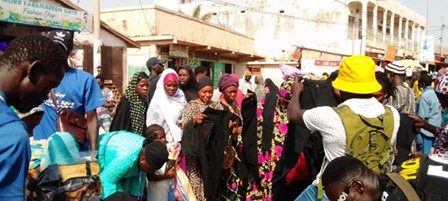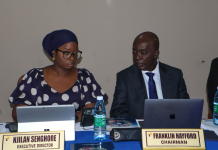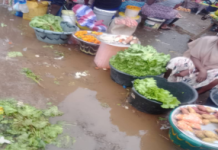WITH: Aja Musu Bah-Daffeh
It is a tradition in The Gambia and the Muslim communities around the world that when the Eid-al-Fitr or ‘Koriteh’—as known in the Wolof language—draws closer, people especially women head to the markets to buy fabrics, shoes, bags amongst others for their families, relatives etc. In The Gambia, all major markets become busier and crowded.
Speaking to women in Serekunda market on their views about this year’s shopping, Mariama Jaiteh complained that the market system is different compared to the previous years, owing to the high price of essential commodities.
She said everything in the market is expensive and low-income earners like her cannot afford to the buy all the things her children desire.
“The request of children in festive seasons rises and to cater for all their needs, the market price should be looked into as majority of Gambians are average earners,” Madam Jaiteh lamented.
Another buyer, Fatou Sowe, expressed that she has never seen the bad conduct of the market in many years, saying the government should introduce price control mechanisms to help its citizenry.
“Not every Gambian can afford the high cost of things in the market and to have a progressive country, citizens should be able buy and sell without any difficulties,” she said.
The mother of five urged the government to look into the country’s foreign policy and among its border countries in order to have a continent free trade area which she said will promote sustainable development.

Binta Marong, a shoe vendor, also complained that the commodities are expensive because of the tax levied on business men and women.
She explained that she goes to Senegal to buy her goods and at the border, she pays a lot of taxes before she could bring in her goods to sell, saying the high fares is also an added disadvantage to businesses.
Therefore, she called on the government and the authorities involved to look into the said matter in order to provide aid for their people.
While conducting the interview, women groups gathered around this reporter and shared the same sentiments on how goods or commodities are getting expensive by the day.
They also implored the government to look into the welfare of women and children in the country.
One of them mentioned that, “The President, Adama Barrow should at least take a patrol in all markets in disguise so that he can know and feel the plight of his people then he would fasten to address our needs.
Eid-al-Fitr, also known as the breaking of fast, marks the end of Ramadan (the ninth month of the Islamic calendar) for all Muslims around the world. In The Gambia, it is the most celebrated days of the year of Muslims.
On the morning of the fest, Eid-al-Fitr, Muslims gather in an open ground to pray and praise God for the successful ending of the Ramadan.



















